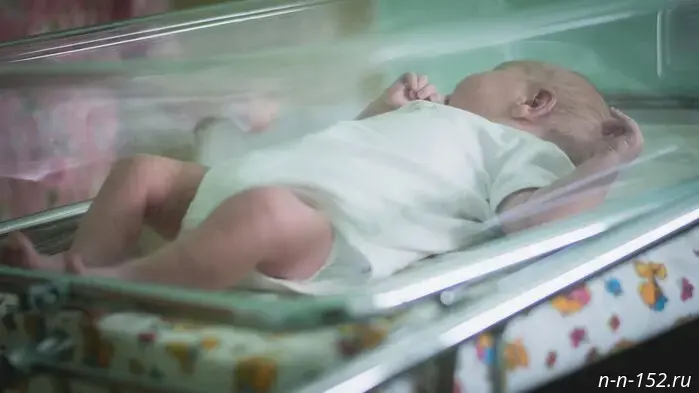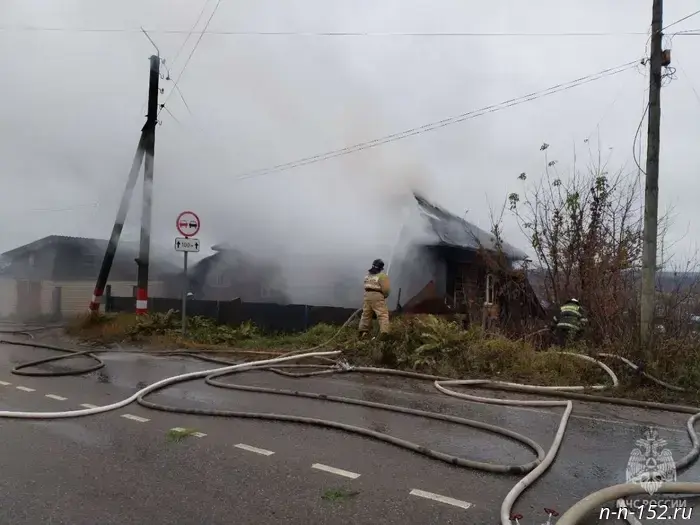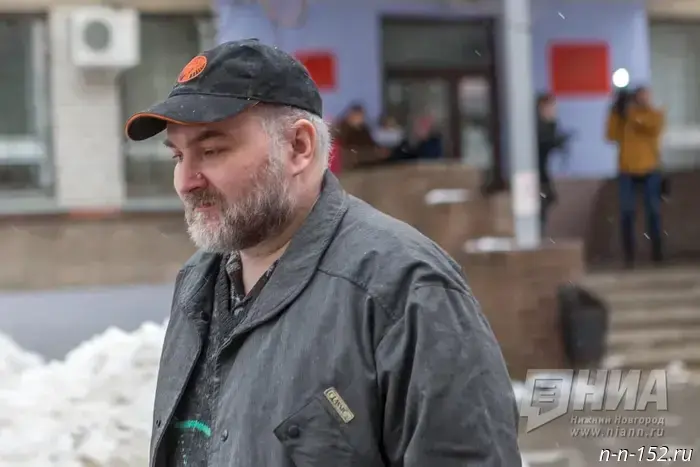
Vladimir Putin highly praised the Nizhny Novgorod region's experience in demographic policy.
On October 23, 2025, Governor of Nizhny Novgorod Oblast Gleb Nikitin spoke at the first meeting of the Council under the President of the Russian Federation for the implementation of state demographic and family policy. He reported to Valentina Matviyenko, Chairwoman of the Federation Council of the Federal Assembly of the Russian Federation, on the results of implementing support measures in the region and on the implementation of key directions of demographic policy.
The Council for the implementation of state demographic and family policy was established by a Decree of the President of the Russian Federation, Vladimir Putin. The Head of State opened the meeting with a welcoming address to its participants.
“The decision to have a child is, of course, a private, personal matter for each person, each family. However, by working together we need to reach a point where people—above all, of course, young people—sincerely strive for the happiness of motherhood and fatherhood, find fulfillment in raising children, and are confident that the state will provide support at the right moment, so to speak, lend a shoulder… In a number of regions local authorities are actively getting involved in solving the housing problems of large families. Overall, solving demographic problems and supporting the family is a task for everyone, indeed for all levels of government—from the federal government to municipalities. And it is important that regions are proactively proposing their own solutions,” said Vladimir Putin.
In particular, the President highly praised the experience of Nizhny Novgorod Oblast.
“As an example of active regional policy in this area, I will note the work of Nizhny Novgorod Oblast. The governor told me about this in detail when I was there on a working visit. This work envisages a number of significant support measures. First of all, regional family capital, which provides for monthly payments for three years after the birth of a child: the first, second and third and subsequent children. Moreover, support is provided to all families regardless of their income level, simply by virtue of the fact of the child’s birth,” Vladimir Putin emphasized.
In his report, Governor Gleb Nikitin gave a detailed account of measures to support families with children and the initial results of implementing demographic support programs in the region. He noted that in 2025 Nizhny Novgorod Oblast launched the Five-Year Family Initiative. The region provides comprehensive support to families in three key areas. The first block of work includes preserving people’s reproductive health and increasing the accessibility of IVF procedures. To this end, the head of the region said a “Family Quarter” will be created in Nizhny Novgorod with the first state regional IVF center. Implementing this initiative meets the goals of two national projects at once—“Long and Active Life” and “Family.”
The second most important direction of work provides financial support to families. Since July 2025, the “Regional Family Capital” has been available to all Nizhny Novgorod families in which children are born: taking into account the federal maternity capital for the first and second child, the amount of payments a family receives exceeds 1 million rubles.
“Our regional maternity capital allows funds to be used for a wider range of purposes than the federal one—for example, to purchase a car. Regional funds can be received in the form of a monthly ‘parent’s salary’ for three years, targeted payments, or a combination of the two,” Gleb Nikitin explained.
Also in Nizhny Novgorod Oblast, in addition to the Ministry of Labour of Russia’s “Demographic Menu,” a measure called the “Newborn Gift” has been launched. This is an electronic certificate worth 20,000 rubles, which can be used to purchase various children’s products from Nizhny Novgorod manufacturers.
“We propose considering the introduction of the ‘Newborn Gift’ nationwide—with an obligation to purchase such goods from Russian manufacturers, which would also support the children’s goods industry,” Gleb Nikitin said.
The third area of work to stabilize the region’s demographic situation is called “Rapid Demographic Assistance.” This is a program of psychological counseling for families and expectant mothers, the main goal of which is to support women facing a reproductive choice, to suggest ways to overcome existing difficulties. Specialists begin working with patients even before they come to the clinic. Fifty independent experts of various profiles consult with women and help them make a decision in favor of giving birth.
Gleb Nikitin also presented the practice of implementing thematic digital services in the region that turn complex administrative procedures into a convenient and understandable process. Nizhny Novgorod Oblast has already launched the interactive application “Wow, Parents!” as well as the portals “Family Navigator” and the “Calculator of Social Support Measures for Families with Children and Future Parents.” The latter solution is a unique digital product with no analogue in Russia; it allows users to obtain an accurate calculation of state support interactively, taking into account personal circumstances.
In closing his report, Gleb Nikitin said that Nizhny Novgorod Oblast is already observing a steady decrease in the total number of pregnancy terminations due to a reduction in abortions at a woman’s request. According to results for the first nine months of 2025, more children were born in Nizhny Novgorod Oblast than Rosstat had projected.
“In the future we plan to expand support programs for families and future parents and to introduce other innovative measures to preserve and develop the region’s demographic potential,” Gleb Nikitin added.
He also proposed that the federal government consider the possibility of full co-financing of programs similar to the Nizhny Novgorod one.
“Across the country this is the most costly demographic measure, which over three years of implementation will require more than 40 billion rubles from the regional budget after reaching full capacity. Given that demography is an unequivocal priority for the whole country, I would like to propose, based on the results of this program—if we see sufficiently positive effects—to consider the issue of moving to full co-financing of programs similar to ours, at least on a pilot basis. We are ready to share our experience with other regions wishing to introduce similar measures,” Gleb Nikitin emphasized.
Valentina Matviyenko, Chairwoman of the Federation Council of the Federal Assembly of the Russian Federation, thanked Gleb Nikitin for the substantial work in the field of demographic policy.
“Thank you for the presentation, for the large amount of work you are carrying out and for the fact that you, personally as head of the region, as a governor, deal with this issue on an ongoing basis. Now you have put on the ‘leader’s jersey’—and you must live up to it, maintain the standard you have set. Naturally, we will make every effort to use and disseminate your experience. Thank you!” Valentina Matviyenko said.
Recall that the national project “Family” was launched in the country in 2025 by order of the President of Russia Vladimir Putin. The new national project succeeds the previously implemented national projects “Demography” and “Culture.” It envisages measures that contribute to the comprehensive development of families: expanding support measures, creating conditions for active longevity of the older generation, and ensuring quality and accessible medical care.
Press Service of the Governor and Government of Nizhny Novgorod Oblast
Photo: kremlin.ru
Другие Новости Нижнего (Н-Н-152)
 Upon arriving at the seaside, the women were told by hotel staff that no reservation had been received in their name and that the voucher was fake. 25.10.2025. GTRK Nizhny Novgorod. Nizhny Novgorod Region. Nizhny Novgorod.
Nikitin thanked transport workers for their contribution to the region's development.
In Nizhny Novgorod, traffic police officers held the "Elderly Pedestrian" campaign.
To prevent road traffic accidents involving older adults, officers of the Nizhny Novgorod Traffic Police conducted the "Elderly Pedestrian" campaign. October 26, 2025. Traffic Police. Nizhny Novgorod Region. Nizhny Novgorod.
Upon arriving at the seaside, the women were told by hotel staff that no reservation had been received in their name and that the voucher was fake. 25.10.2025. GTRK Nizhny Novgorod. Nizhny Novgorod Region. Nizhny Novgorod.
Nikitin thanked transport workers for their contribution to the region's development.
In Nizhny Novgorod, traffic police officers held the "Elderly Pedestrian" campaign.
To prevent road traffic accidents involving older adults, officers of the Nizhny Novgorod Traffic Police conducted the "Elderly Pedestrian" campaign. October 26, 2025. Traffic Police. Nizhny Novgorod Region. Nizhny Novgorod.
 10 forgotten Russian names that are making a comeback in the Nizhny Novgorod region
Nizhny Novgorod residents have begun to give their children Old Russian names more frequently
Anastasia Larionovskaya, writer
Just a few years ago names like Dobrynya or Zabava could be found only in fairy tales.
26.10.2025. NewsNN.Ru. Nizhny Novgorod Region. Nizhny Novgorod.
10 forgotten Russian names that are making a comeback in the Nizhny Novgorod region
Nizhny Novgorod residents have begun to give their children Old Russian names more frequently
Anastasia Larionovskaya, writer
Just a few years ago names like Dobrynya or Zabava could be found only in fairy tales.
26.10.2025. NewsNN.Ru. Nizhny Novgorod Region. Nizhny Novgorod.
 A house burned down in Uren because of a child's prank with fire.
A house burned down in Uren because of a child's prank with fire.
 "The 'Dollmaker' Moskvin confessed to other crimes in yet another interview."
"The 'Dollmaker' Moskvin confessed to other crimes in yet another interview."
Vladimir Putin highly praised the Nizhny Novgorod region's experience in demographic policy.
On October 23, 2025, Gleb Nikitin, Governor of Nizhny Novgorod Oblast, spoke at the first meeting of the Council under the President of the Russian Federation on the implementation of state demographic and family policy. 24.10.2025. Znamya newspaper. Nizhny Novgorod Oblast. Bolshoye Murashkino.
